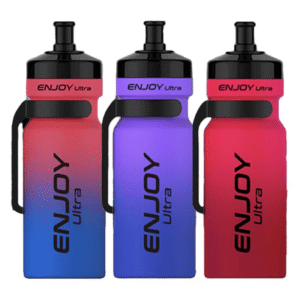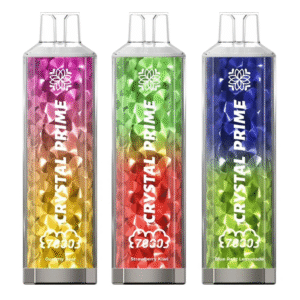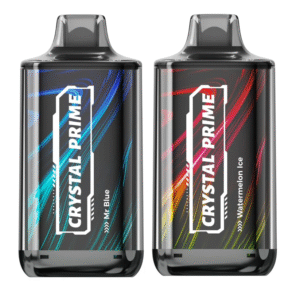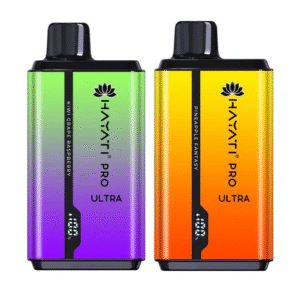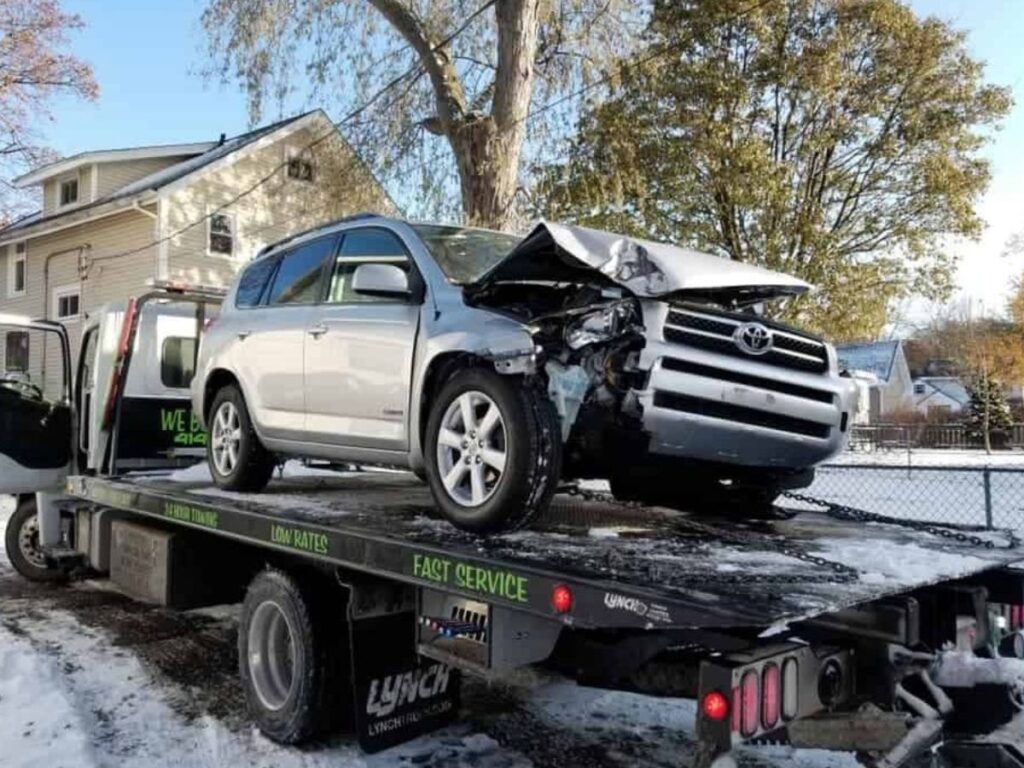
When your car suffers damage in Sydney, whether from an accident, hail storm, or mechanical failure, the path forward isn’t always clear. Many vehicle owners find themselves caught between costly repair estimates and the uncertainty of their car’s actual worth. The good news? Sydney’s damaged car market has evolved significantly, offering multiple pathways to convert your damaged vehicle into fair compensation without the traditional hassles.
Understanding Sydney’s Damaged Car Market Dynamics
Sydney’s automotive landscape presents unique challenges and opportunities for damaged vehicle owners. The city’s diverse geography, from coastal areas prone to salt corrosion to busy urban centres with higher accident rates, creates a steady supply of damaged vehicles. Meanwhile, a robust network of salvage operations, parts recyclers, and export businesses drives consistent demand.
The damaged car market operates on principles that differ significantly from traditional used car sales. Buyers evaluate vehicles based on salvageable components, scrap metal value, and potential for economical restoration. This creates opportunities for owners who understand how to position their damaged vehicles effectively.
Recent market analysis shows that damaged vehicle values in Sydney have increased by approximately 15% over the past two years, driven by rising metal prices and growing demand for used auto parts. This trend benefits owners who act quickly and choose the right disposal method. For a better understanding of Sydney’s damaged car market dynamics, visit our website.
The True Cost of Keeping a Damaged Vehicle
Many Sydney residents underestimate the financial burden of holding onto a damaged car. Beyond the obvious repair costs, damaged vehicles create hidden expenses that accumulate rapidly.
Storage costs represent a significant factor. Whether you’re paying for garage space or facing council fines for street parking of unregistered vehicles, these expenses can quickly exceed your car’s actual value. Insurance complications add another layer of complexity, as many policies don’t cover unroadworthy vehicles stored on private property.
Registration and compliance issues create additional headaches. New South Wales requires vehicles to maintain roadworthy status for registration renewal. Damaged cars often fail to meet these standards, resulting in cancelled registration and potential penalties.
The depreciation factor proves particularly brutal for damaged vehicles. Unlike standard depreciation, damage-related value loss accelerates exponentially. Components that remain functional today may deteriorate rapidly without proper maintenance, and cosmetic damage often leads to rust and structural problems.
Evaluating Your Damaged Car’s True Worth
Determining your damaged vehicle’s value requires understanding multiple assessment criteria. The process involves more than simply subtracting repair costs from pre-accident value.
Salvageable Component Value
Modern vehicles contain numerous valuable components that retain worth even after significant damage. Electronic systems, catalytic converters, airbags, and engines often survive accidents with minimal impact. These components command strong prices in Sydney’s parts market.
Professional assessors examine wiring harnesses, ECUs, transmissions, and body panels for reusability. Even seemingly minor components like mirrors, lights, and trim pieces contribute to overall value.
Scrap Metal Content
Contemporary vehicles contain substantial amounts of recyclable materials. Steel, aluminium, copper, and precious metals from catalytic converters all contribute to base scrap value. Current metal prices significantly influence these calculations.
The average passenger vehicle contains approximately 65% steel and iron, 15% aluminium, and smaller amounts of copper, zinc, and lead. These materials maintain value regardless of the vehicle’s condition.
Restoration Potential
Some damaged vehicles present opportunities for economical restoration. Classic cars, rare models, or vehicles with primarily cosmetic damage may appeal to restoration specialists. This potential adds premium value beyond simple parts and scrap calculations.
Quick Cash Solutions for Damaged Cars in Sydney
Sydney’s damaged car market offers several pathways to rapid cash conversion, each with distinct advantages and considerations.
Professional Car Buying Services
Specialized damaged car buyers have emerged as the most efficient solution for many owners. These businesses streamline the entire process, offering same-day evaluations and cash payments.
Reputable services provide free vehicle assessments, handling all paperwork and removal logistics. They maintain established relationships with parts dealers, exporters, and scrap processors, enabling competitive pricing that individual owners cannot typically achieve independently.
The key advantage lies in convenience and speed. Professional buyers eliminate the uncertainty, negotiation stress, and time investment required for private sales or auction processes.
Insurance Settlement Optimization
For accident-damaged vehicles, working effectively with insurance companies can maximize returns. Understanding settlement processes, challenging inadequate assessments, and negotiating retention rights often increases net compensation.
Many owners accept initial settlement offers without realizing their negotiation potential. Independent assessments frequently reveal undervaluation, particularly for vehicles with recent improvements or unusual configurations.
Retention strategies allow owners to keep damaged vehicles while receiving settlement payments. This approach works particularly well when the vehicle retains significant parts value exceeding the insurer’s salvage calculation.
Auction and Wholesale Channels
Sydney’s vehicle auction network provides another avenue for damaged car sales. Both physical and online auctions attract professional buyers seeking specific vehicles or components.
Auction success depends heavily on presentation and timing. Providing comprehensive damage documentation, highlighting valuable components, and choosing appropriate sale timing maximizes results.
Wholesale buyers often purchase damaged vehicles in bulk, offering quick transactions but potentially lower prices. This option suits owners prioritizing speed over maximum return.
Navigating the Legal and Administrative Maze
Selling damaged vehicles in Sydney involves specific legal requirements and administrative processes that owners must understand to avoid complications.
Registration and Title Transfer
New South Wales requires proper title transfer procedures regardless of vehicle condition. Sellers must complete transfer documentation correctly to avoid ongoing liability for the vehicle.
Unregistered vehicles require additional documentation. Owners must provide evidence of legal ownership and comply with disposal regulations.
Environmental Compliance
Vehicle disposal in Sydney must comply with environmental regulations governing fluid removal, battery handling, and parts recycling. Professional buyers typically manage these requirements, but private sellers bear responsibility for compliance.
Improper disposal can result in significant penalties and environmental liability. Understanding these obligations helps owners choose appropriate disposal methods.
Tax Implications
Vehicle sales may create tax obligations depending on circumstances. Business owners claiming depreciation deductions face specific rules regarding disposal proceeds.
Capital gains considerations apply to classic or appreciating vehicles. Professional tax advice ensures compliance and optimization of net proceeds.
Maximizing Your Return: Strategic Approaches
Successful damaged car sales require strategic thinking beyond simply finding any willing buyer. Smart owners employ tactics that can significantly increase their returns.
Timing Considerations
Market timing affects damaged car values substantially. Scrap metal prices fluctuate based on global commodity markets, while parts demand varies seasonally.
Post-accident timing also matters. Recent accident victims often accept lower offers due to emotional stress and immediate cash needs. Taking time to research options typically increases returns.
Documentation and Presentation
Comprehensive documentation increases buyer confidence and justifies higher offers. Maintenance records, recent repair receipts, and component condition reports demonstrate value beyond obvious damage.
Professional presentation doesn’t require expensive staging. Clean, organized vehicles with accessible damage areas allow buyers to conduct proper assessments.
Multiple Quote Strategy
Obtaining quotes from various buyer types reveals market range and negotiation potential. Comparing offers from parts dealers, scrap processors, and professional buying services ensures optimal selection.
Different buyers value various aspects differently. Parts specialists may offer premiums for specific components, while scrap processors focus on metal content.
The Role of Technology in Modern Damaged Car Sales
Digital platforms have revolutionized how Sydney residents sell damaged vehicles. Online valuation tools, photo-based assessments, and digital documentation streamline traditional processes.
Mobile apps enable instant quotes based on vehicle photos and damage descriptions. While these tools provide convenient starting points, professional inspections remain necessary for accurate valuations.
Digital marketplaces connect sellers with specialized buyers nationwide, expanding market reach beyond local options. This increased competition typically benefits sellers through higher offers.
Common Pitfalls and How to Avoid Them
Damaged car sales present numerous opportunities for costly mistakes. Understanding common pitfalls helps owners navigate the process successfully.
Undervaluation Acceptance
Many owners accept initial offers without proper market research. Emotional stress following accidents often impairs judgment, leading to hasty decisions and financial losses.
Professional assessments provide objective valuations that counteract emotional decision-making. Investment in proper evaluation typically pays substantial returns.
Documentation Oversights
Incomplete paperwork creates legal complications and potential liability. Ensuring proper title transfer, lien satisfaction, and registration cancellation protects sellers from future problems.
Professional buying services typically handle documentation correctly, reducing owner risk and administrative burden.
Timing Pressures
Insurance companies and storage facilities often create artificial urgency around damaged vehicle disposal. While prompt action is important, rushed decisions frequently cost money.
Understanding actual deadlines versus perceived pressure helps owners make informed choices without sacrificing returns.
Building Relationships with Reliable Car Buyers in Sydney
Long-term success in damaged car transactions often depends on developing relationships with reputable professionals. These connections prove valuable for future needs and referral opportunities.
Reliable buyers demonstrate consistent fair pricing, transparent processes, and professional service. They provide market insights, advance notice of price changes, and preferential treatment for repeat customers.
Community recommendations and online reviews help identify trustworthy operators. Professional associations and industry credentials provide additional verification of legitimacy and competence.
Future Trends in Sydney’s Damaged Car Market
The damaged vehicle market continues evolving with technological advances, regulatory changes, and economic factors. Understanding these trends helps owners anticipate future opportunities and challenges.
Electric vehicle adoption will significantly impact the market as these vehicles enter accident cycles. Their complex battery systems and specialized components will require new expertise and create different value propositions.
Autonomous vehicle technology may reduce accident rates but create new damage categories related to sensor and computing systems. These high-value components will likely maintain strong salvage values.
Environmental regulations continue tightening, requiring more sophisticated recycling processes. These changes typically increase costs for processors, potentially affecting pricing structures.
Economic Impact and Community Benefits
Sydney’s damaged car market provides significant economic and environmental benefits beyond individual transactions. The industry supports hundreds of jobs across assessment, processing, parts sales, and logistics functions.
Environmental benefits include reduced landfill burden, materials conservation, and energy savings from recycling versus new production. Professional processing ensures proper handling of hazardous materials like fluids, batteries, and airbags.
The circular economy principles demonstrated in damaged car recycling support broader sustainability goals. Extending component lifecycles through reuse reduces manufacturing demand and associated environmental impacts.
Making the Right Choice for Your Situation
Selecting the optimal damaged car disposal method depends on numerous individual factors including timeline requirements, value expectations, and personal preferences regarding convenience versus maximum return.
Owners prioritizing speed and convenience typically benefit from professional buying services. Those willing to invest time and effort in private sales or auction processes may achieve higher returns.
Financial circumstances also influence optimal strategies. Immediate cash needs may justify accepting lower offers, while owners with financial flexibility can pursue maximum value approaches.
Conclusion: Turning Automotive Adversity into Opportunity
Sydney’s damaged car market offers numerous pathways to fair compensation for accident victims and owners of deteriorated vehicles. Success requires understanding market dynamics, evaluating options comprehensively, and choosing strategies aligned with individual circumstances.
The key lies in recognizing that damaged doesn’t mean worthless. Professional assessment, strategic timing, and proper presentation can unlock substantial value from seemingly hopeless situations.
Whether pursuing quick cash through professional buyers, maximizing insurance settlements, or exploring specialized markets for valuable components, Sydney residents have access to sophisticated solutions for damaged vehicle disposal.
The market rewards informed participants who understand their options and act strategically. With proper approach and realistic expectations, damaged car owners can transform automotive setbacks into reasonable financial outcomes while contributing to sustainable recycling practices that benefit the broader community.
Taking action promptly while avoiding rushed decisions positions owners for optimal results. The combination of professional guidance, market knowledge, and strategic thinking converts damaged vehicles into fair compensation, allowing owners to move forward with confidence and financial stability.
